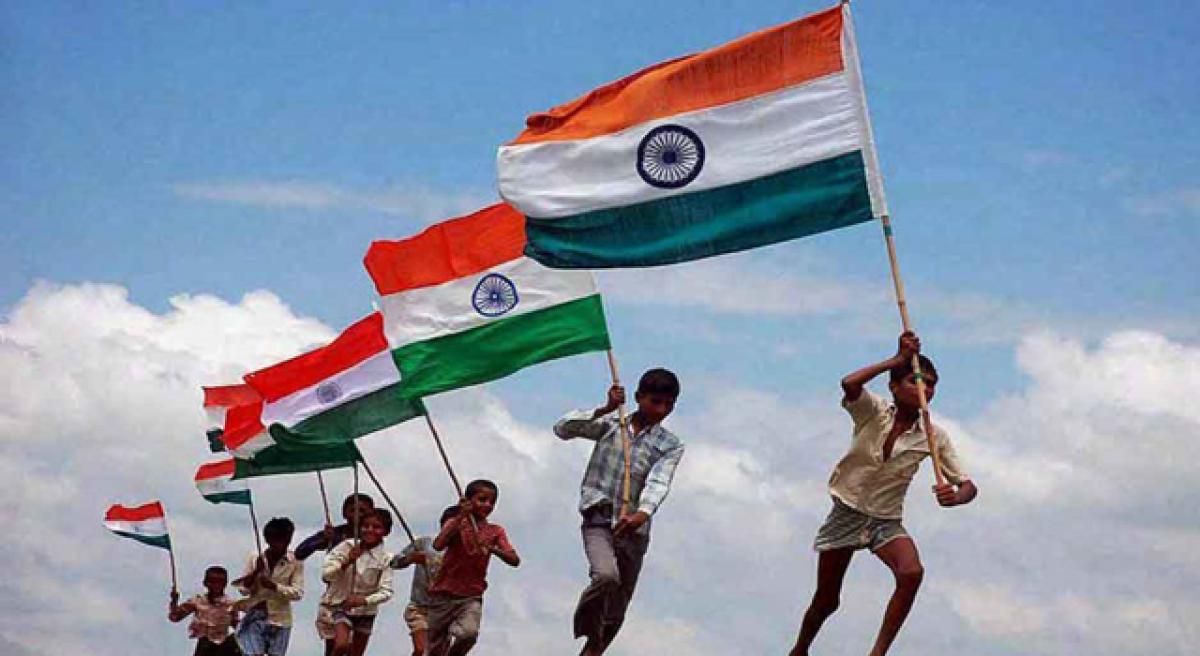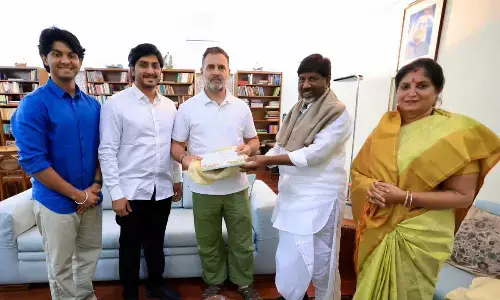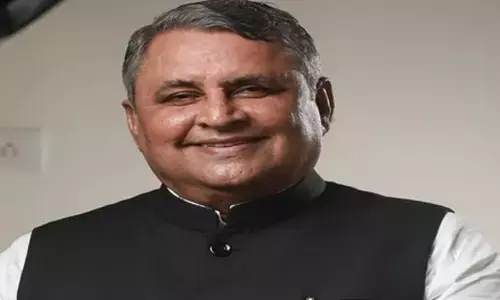Lest you forget the importance of I-Day

Let us brush up on the following facts and figures of the 21st century India, India is celebrating 70th anniversary of her independence with traditional gaiety and festivities. And the list goes on... There is no end to the problems. Solutions are out of sight.
Let us brush up on the following facts and figures of the 21st century India, India is celebrating 70th anniversary of her independence with traditional gaiety and festivities. And the list goes on... There is no end to the problems. Solutions are out of sight.
Who can deny that we have achieved independence so dearly sacrificing millions of lives and undergoing unbearable psycho-physical torture and harassment? Every year we hoist our national flags on the Independence Day and wait till the next year to return the historic event.
Highlights:
- Zero medals in the ongoing Rio Olympics
- 27 per cent of the population is still living as BPL families
- It remains the second most populous nation of the world with around 1.32 billion of the people
- Every sixth person of the world is an Indian. And it adds an Australia every year to its population
- More than one fourth of population remains illiterate
- It ranks a deplorable 130th in the HDI report from among 188 countries
- Farmers, the bread providers of the nation, are on the verge of committing suicide
- Thousands of tonnes of precious food grain rot at the platforms of various railway stations due to sheer negligence of the authorities concerned
- Jammu & Kashmir is in chaos and continuously smouldering
- BIMARO states (Bihar, Madhya Pradesh, Rajasthan and Odisha) are on boil due to lack of fulfilments of even basic needs of common masses.
But is this enough to remember this so much historically and politically significant day just by unfurling the tricolours – emblem of the aspirations of the people of the country?
In fact, the days like that of Independence Day provide us an opportunity to evaluate ourselves- How much we have succeeded to fulfil the people’s aspirations and how much are yet left to achieve.
It is also the occasion to make a serious self-introspection and an honest soul-searching about our moral duties to keep the hard-won freedom intact for the young generations.
It is also the time to seriously think about our problems and try to find out their solutions. In fact, getting freedom is crucial but sustaining it is more crucial and for this we need to ponder over a few vital steps and strategies.
It is not surprising that even after seven decades of the freedom of the country we have not been able to emancipate our people from the vortex of poverty and shackles of illiteracy, diseases, and other various socio-economic maladies.
It does never mean that during the last seven decades we have not made any progress. In fact, the post-independent India has record development sagas and unbelievable growth trajectory.
From the so-called nation of importer of wheat under PL 480 of the USA and to that of Western countries’ much-abused synonym of the country of snake charmers- we are set to search the possibilities of life on the Mars.
From the nearly 1 per cent of the so-called Hindu rate of growth of national income in the pre-independent India we have marched ahead to boast of having as much as around 7.5 per cent annual growth rate, second only to China.
The success of 1960s’ green revolution, which gave us the record production of food grains that reached out to the present figure of approximately 300 million tonnes, and that of our giant leap towards the space and technological advancements are a few milestones which the country can feel elated about.
But unfortunately these hard-earned strides are not adequate. Even today there is no dearth of problems. Lacunae are galore. Plethora of crises persist permanently. Social welfare schemes and development paradigms run faster on paper than in action.
Power supply situation, especially in rural areas is still a major challenge for the government. Quality of education, especially that of primary level in the government schools presents a very ugly picture of how our future is being educated in the latest technology-deprived classrooms of the dilapidated schools.
The anti-national forces of terrorism, Naxalism, separatism and extremist have wrought havoc on the very sovereignty of the nation.
No doubt, the government does not have a magic wand to solve virtually all the problems the country is stuck in. But this no way underestimates the role of the duly elected government to help realise the dreams of millions of the people.
We have got out political freedom but we need to seriously think over ensuring economic freedom to all the citizens of the nation, especially to the lower strata of the society.
We must not ever forget that for a hungry man nothing can be more pleasing than bread and butter. The philosophy of independence and the issue of reinforcing the sovereignty of the nations badly fail to spell any magic in the minds of the people who go to bed with empty stomach.
Generation of employment opportunities must be given topmost priority which would reduce the poverty. We need to further emphasise upon the development of infrastructures.
Education, especially at the primary level, the stepping stone of the pyramid of entire education of human life, needs urgent revamping. The debilitating forces of sovereignty of the nation needs to be strictly dealt with.
No doubt, the period of seventy years is not chronologically a very long period in the life of a nation but it is not so meagre either to let it go unnoticed and unintrospected.









